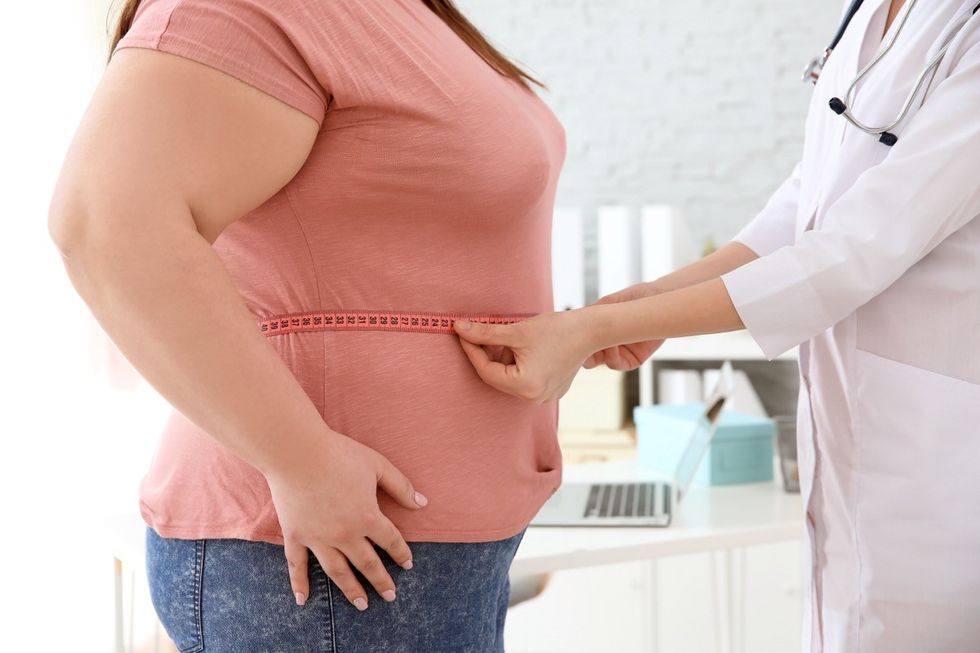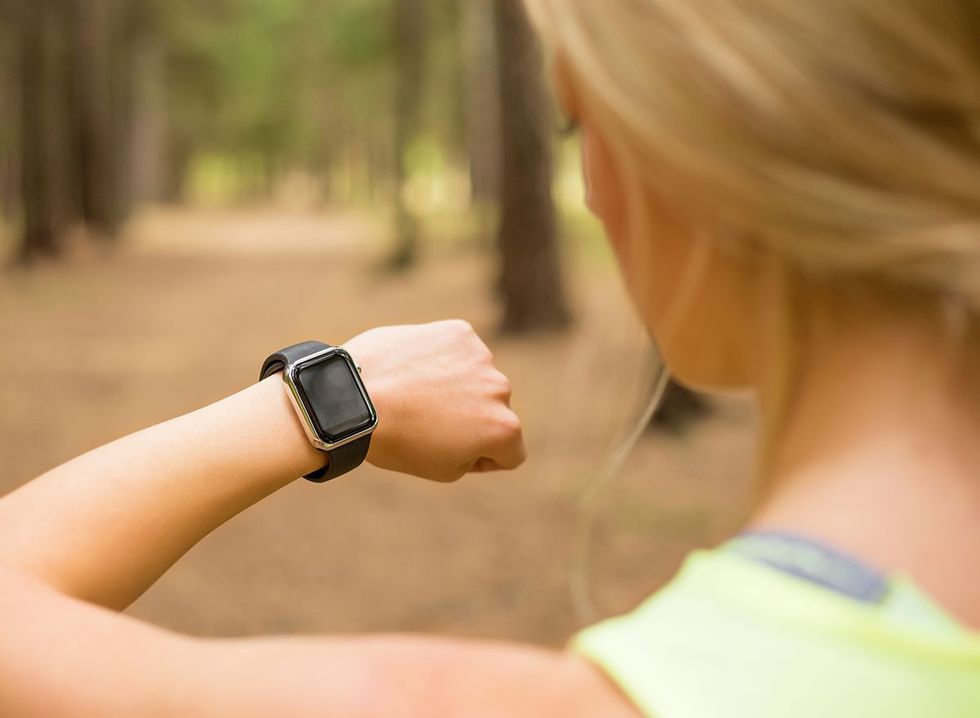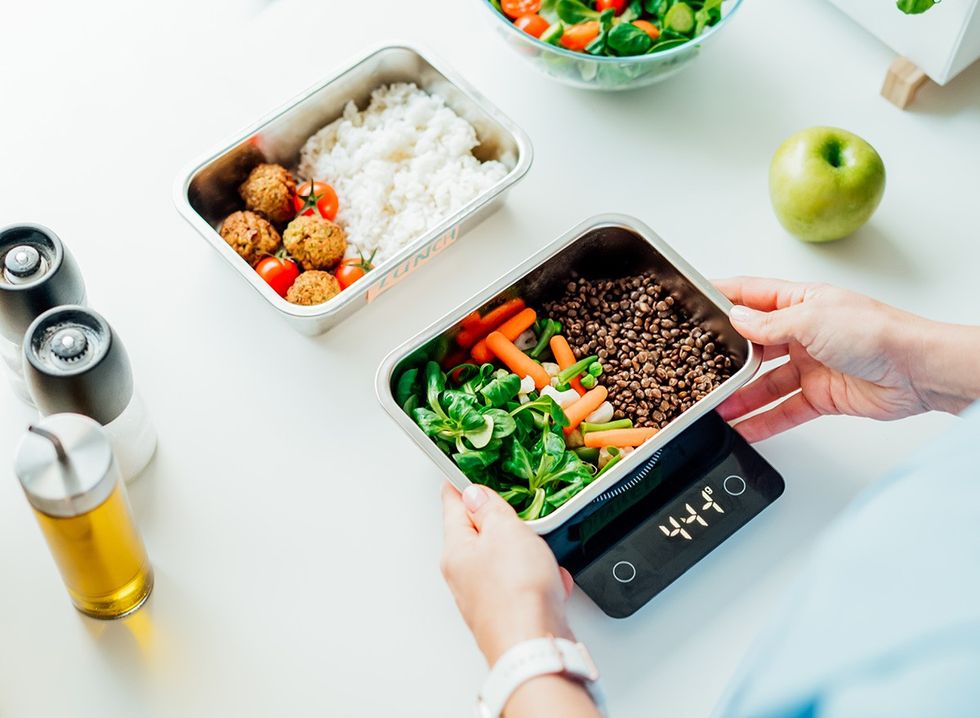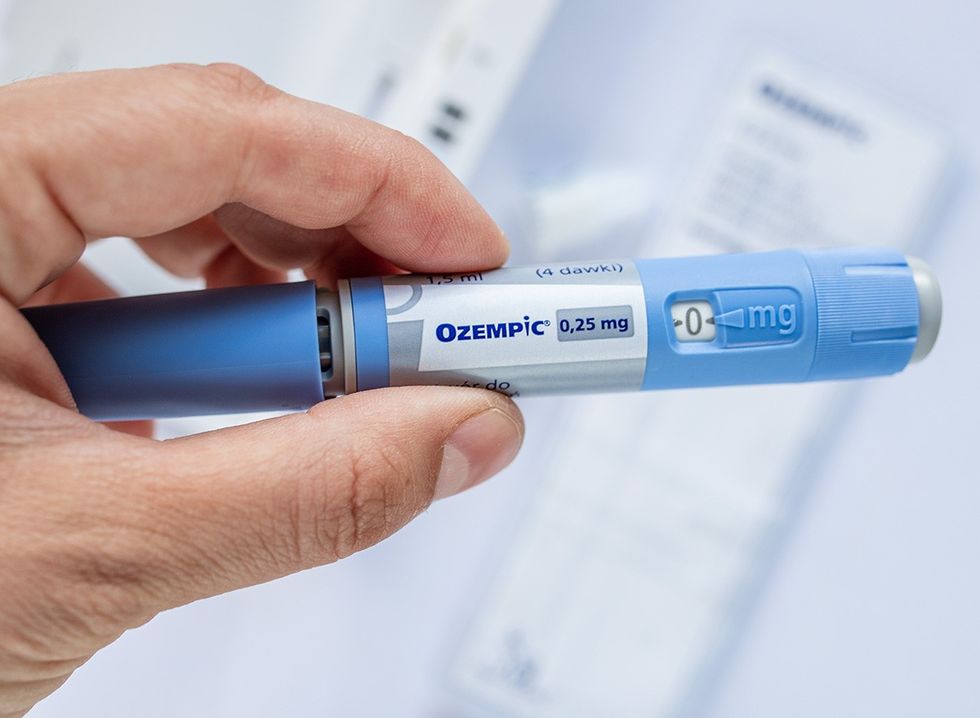Is your health and weight loss regimen being undermined by constant snacking and grazing? “It’s not just about what we eat that matters to our health – it’s also how often we eat and when,” longevity expert Luigi Fontana, MD, PhD, FRACP, tells the Sydney Morning Herald. “Our ancestors didn’t have the luxury of three meals a day and snacks. The way we eat has changed, and our eating frequency has increased for no physiological reason. People snack even if they’re not hungry.” Here’s what happens to your body when you stop mindlessly snacking and start focusing on nutritious, healthy meals.
Weight Loss

When you stop snacking, you automatically take in less calories. “Your weight is a balancing act, but the equation is simple. If you eat more calories than you burn, you gain weight,” says the Mayo Clinic. “And if you eat fewer calories and burn more calories through physical activity, you lose weight.”
Decreased Inflammation

Studies show that constant snacking all day long can lead to increased inflammation. “What we do know is that not only does snacking increase your likelihood of elevated inflammatory markers, but eating excessive calories also leads to weight gain,” says Jenna Macciochi, PhD, via The Conversation. “Eating late has also been linked to elevated cholesterol and glucose and can make you more insulin resistant. This leaves you feeling more hungry the following day.”
RELATED: I Lost 10 Pounds in 4 Weeks on the Carnivore Diet
Better Digestion

“The time between meals is your gut microbiome’s downtime,” Andrew Riposta, CHN, IIN, NASM-CPT, tells Oxygen Mag. “During downtime, it repairs itself. If you’re having a few meals a day and snacking all day between, your gut has no break from all that hard work.”
Hungry For Meals

By relying on just your regular meals instead of snacks, you may choose more nutrient-filled foods. “Too much snacking can reduce hunger at meal times or cause one to skip a meal entirely, which increases the risk of losing out on important nutrients,” according to the Harvard T.H. Chan School of Public Health.
More Energy

You might find yourself with more energy throughout the day by not snacking. “Some researchers believe that people feel tired after eating because their body’s producing more serotonin,” Julia Zumpano, RD, LD, tells the Cleveland Clinic. “Serotonin is the chemical that regulates mood and sleep cycles.”
No Sugary Drinks

Sugary drinks count as snacks, too—by replacing them with healthier alternatives, you will cut calories and improve your overall health. “If you drink regular soda or energy drinks, look at the amount of added sugar on the Nutrition Facts label. Sugar drinks easily can add excess calories and pounds,” says the American Heart Association.
RELATED: 10 Daily Rituals to Boost Metabolism and Lose Weight Over 50
Preventing Cell Damage

Eliminating snacks can help improve your health on a cellular level. “Our bodies aren’t designed to eat so many times during the day,” Professor Fontana tells the Sydney Morning Herald. “Each time we eat, we produce insulin to control our blood glucose – and one effect of turning insulin on too often is that it inhibits the processes that help repair damage to the body’s cells. We know that when cells accumulate damage, they’re more vulnerable to diseases, including cancer and dementia.”
Blood Sugar Improvement

Cutting out snacks can help stabilize blood sugar (assuming you are not diabetic). “You’ll see improvements in caloric intake, mental clarity, body fat, and digestion,” Riposta tells Oxygen Mag. “Your blood glucose numbers will regulate better because you’re not sending them on a roller-coaster ride as often every day.”
Belly Fat

Studies show that once you stop snacking—especially at night—you can see a reduction in belly fat. “Previous research by us and others had shown that late eating is associated with increased obesity risk, increased body fat, and impaired weight loss success. We wanted to understand why,” Frank Scheer, HMS professor of medicine and director of the Medical Chronobiology Program in the Division of Sleep and Circadian Disorders at Brigham and Women’s, tells the Harvard Gazette.
RELATED: 10 Simple Exercises for Toned Arms You Can Do at Home
Better Food Choices

Not snacking can immediately eliminate unhealthy foods from your diet. “The biggest potential downside of snacking is that the foods people most commonly choose are not those that promote good health,” clinical nutritionist Martin MacDonald tells The Guardian. “That means that regular snacking on top of meals can easily lead to overconsumption of calories and unhealthy fat gain.”
Avoid Temptation

If you want to prevent snacking, don’t keep snack foods in the house. “If I do have a snack in the afternoon, it would just be a piece of fruit,” Professor Fontana tells the Sydney Morning Herald. “We don’t have sweets, biscuits, or packaged snacks in the house either – if they’re not there, you don’t eat them.”
RELATED: 7 Habits from Ben Affleck's Trainer That Will Transform Your Body in 6 Months
Sensible Snacking

If you do need to have a snack, make sensible choices. “Choose nutrient-dense foods that will help fill the gaps in your eating plan,” Allyn Wergin, RDN, tells the Mayo Clinic. “Focus on incorporating whole foods, such as fruits, vegetables, whole grains, and low-fat dairy products. Try to combine carbohydrates, protein, and fat for long-lasting, satisfying snacks. Choose these options rather than packaged items high in calories, fat, and sodium, such as chips, candy, or cookies.”
💪🔥Body Booster: Don’t keep snacks in the house. If they're not there, you can’t eat them.














 Shutterstock
Shutterstock Shutterstock
Shutterstock Shutterstock
Shutterstock Shutterstock
Shutterstock Shutterstock
Shutterstock Shutterstock
Shutterstock Shutterstock
Shutterstock Shutterstock
Shutterstock Shutterstock
Shutterstock
 Shutterstock
Shutterstock Shutterstock
Shutterstock Shutterstock
Shutterstock Shutterstock
Shutterstock Shutterstock
Shutterstock Shutterstock
Shutterstock Shutterstock
Shutterstock Shutterstock
Shutterstock


 Alissa_Brecht_alissabrechtrd/Instagram
Alissa_Brecht_alissabrechtrd/Instagram Shutterstock
Shutterstock Shutterstock
Shutterstock Shutterstock
Shutterstock Alissa_Brecht_alissabrechtrd/Instagram
Alissa_Brecht_alissabrechtrd/Instagram Diet Diva/Facebook
Diet Diva/Facebook

 I'm a Nutritionist and These 9 High-Protein Snacks Keep My Clients Full While Losing 50 Pounds
I'm a Nutritionist and These 9 High-Protein Snacks Keep My Clients Full While Losing 50 Pounds
 Shutterstock
Shutterstock 2. Processed FoodsShutterstock
2. Processed FoodsShutterstock Shutterstock
Shutterstock Shutterstock/Prostock-studio
Shutterstock/Prostock-studio Shutterstock
Shutterstock Pro TipsShutterstock
Pro TipsShutterstock Shutterstock
Shutterstock Shutterstock
Shutterstock Shutterstock
Shutterstock Shutterstock
Shutterstock Don’t Drink as Much AlcoholShutterstock
Don’t Drink as Much AlcoholShutterstock Most Women on GLP-1s Are Making a Few Common MistakesShutterstock
Most Women on GLP-1s Are Making a Few Common MistakesShutterstock Soda and Sugary DrinksShutterstock
Soda and Sugary DrinksShutterstock Shutterstock
Shutterstock Eat BreakfastShutterstock
Eat BreakfastShutterstock And Improve Insulin SensitivityShutterstock
And Improve Insulin SensitivityShutterstock Belly Flab Strip Tip: Sugar and Fat Calories Leave Its Mark on Your BodyShutterstock
Belly Flab Strip Tip: Sugar and Fat Calories Leave Its Mark on Your BodyShutterstock Shutterstock
Shutterstock The Drugs Mimic the GLP-1 Hormone Naturally Produced by the BodyShutterstock
The Drugs Mimic the GLP-1 Hormone Naturally Produced by the BodyShutterstock 3. Deep-Fried ItemsShutterstock
3. Deep-Fried ItemsShutterstock